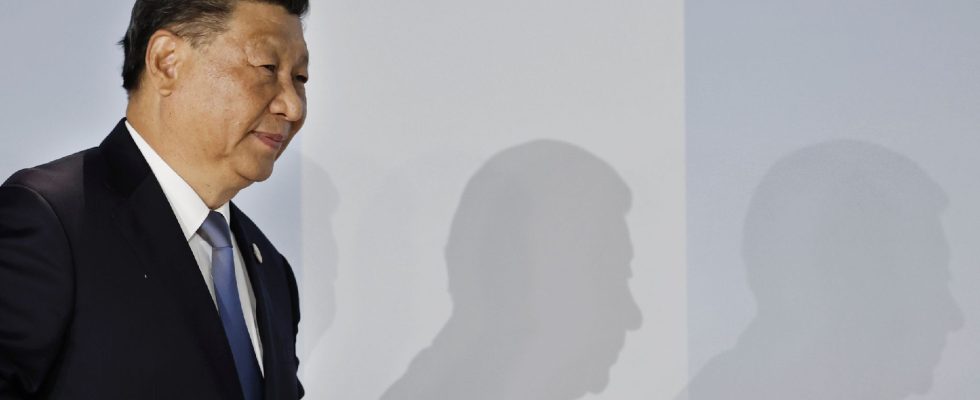The Chinese Communist Party makes this its watchword. Make its 1.4 billion inhabitants, 1.4 billion patriots. To do this, Beijing adopted a new law on Tuesday, October 24 aimed at consolidating “patriotic education”.
Effective from January 1, 2024, the law will “strengthen patriotic education” and seek to communicate a “patriotic spirit” to Chinese youth, said the state agency Xinhua, which ensures that the education sector has recently been “facing challenges”.
Fight against the influence of “certain social thoughts”
“Some people are lost about what patriotism is,” says Chine Nouvelle. The editorial published by the state agency refers in particular to “certain social thoughts, such as historical nihilism” – a phrase often used by Beijing to condemn opinions going against official rhetoric about the party.
Already in 2021, Beijing had declared the end of the very lucrative private tutoring sector, hit by a series of repressive measures. At the time, the Party justified this turn of the screw as a means of fighting against inequalities. “Thought control,” Willy Lam, professor at the Center for Chinese Studies in Hong Kong, assured our colleagues at West France.
The same year, 300 million Chinese students returned to school with a new textbook in their schoolbag: Xi Jinping Thought on Socialism with Chinese Characteristics for a New Era. The reflection, already, of the official propaganda of the regime and its ideological hardening.
Establish the legitimacy of the Party
Several provisions present in the law adopted this Tuesday already appear in other texts. First and foremost the one which prohibits “insulting the national flag and distorting or denying the exploits and the spirit of heroes”.
For the President of the People’s Congress of China, Zhao Leji, this new legislative base will help the country “forge a powerful force” to build a “strong” nation, reported Xinhua.
It must be said that behind this desire to establish homogeneity, Beijing hopes to strengthen its legitimacy among its population. And this, thanks to the massive distribution of a national novel which highlights the Communist Party for its fight against poverty, but also China’s place on an international scene considered hostile. Without any mention, obviously, of the party’s responsibility in triggering the Cultural Revolution (1966-1976) or even the Great Famine (1958-1962). Two bloody episodes during which millions of Chinese lost their lives.
